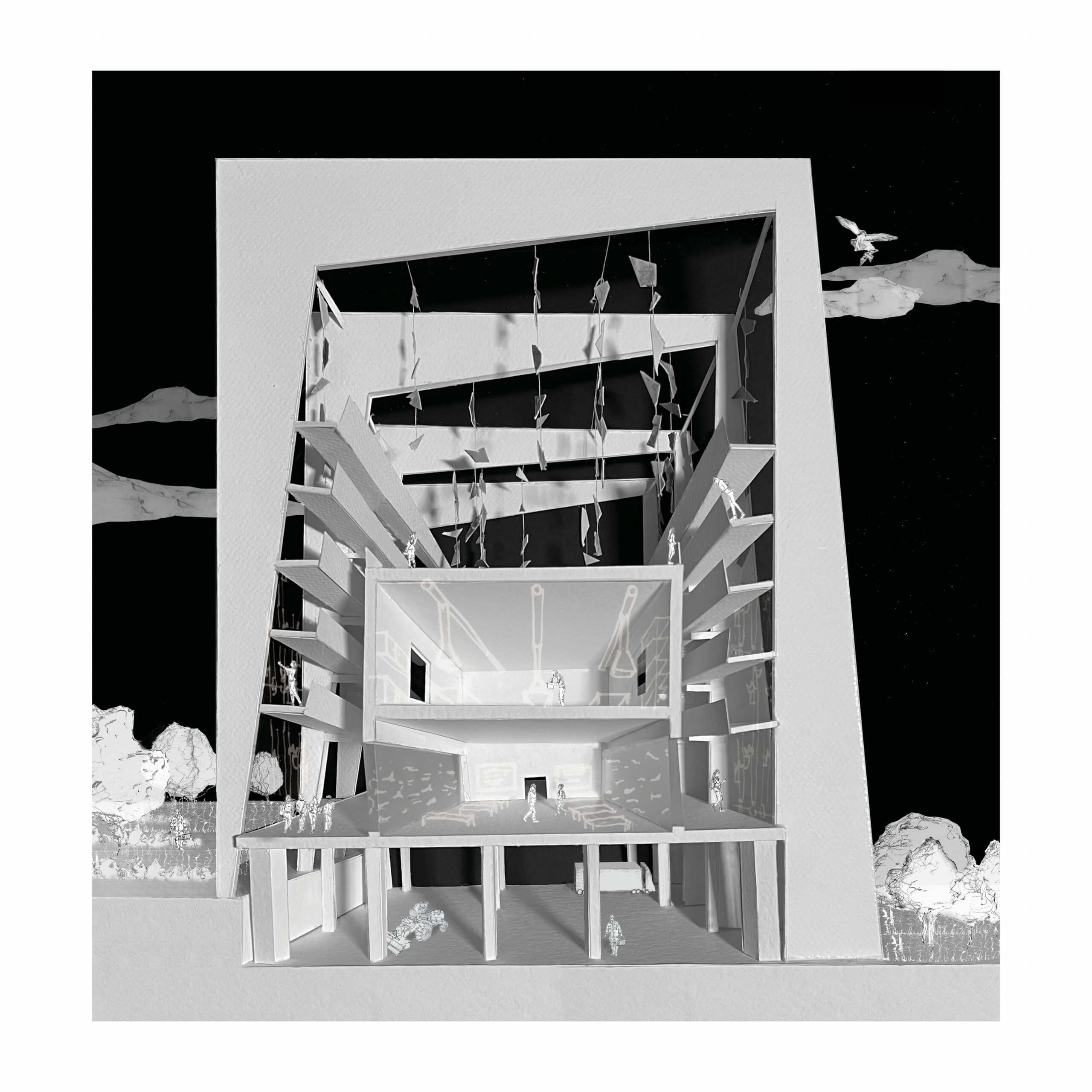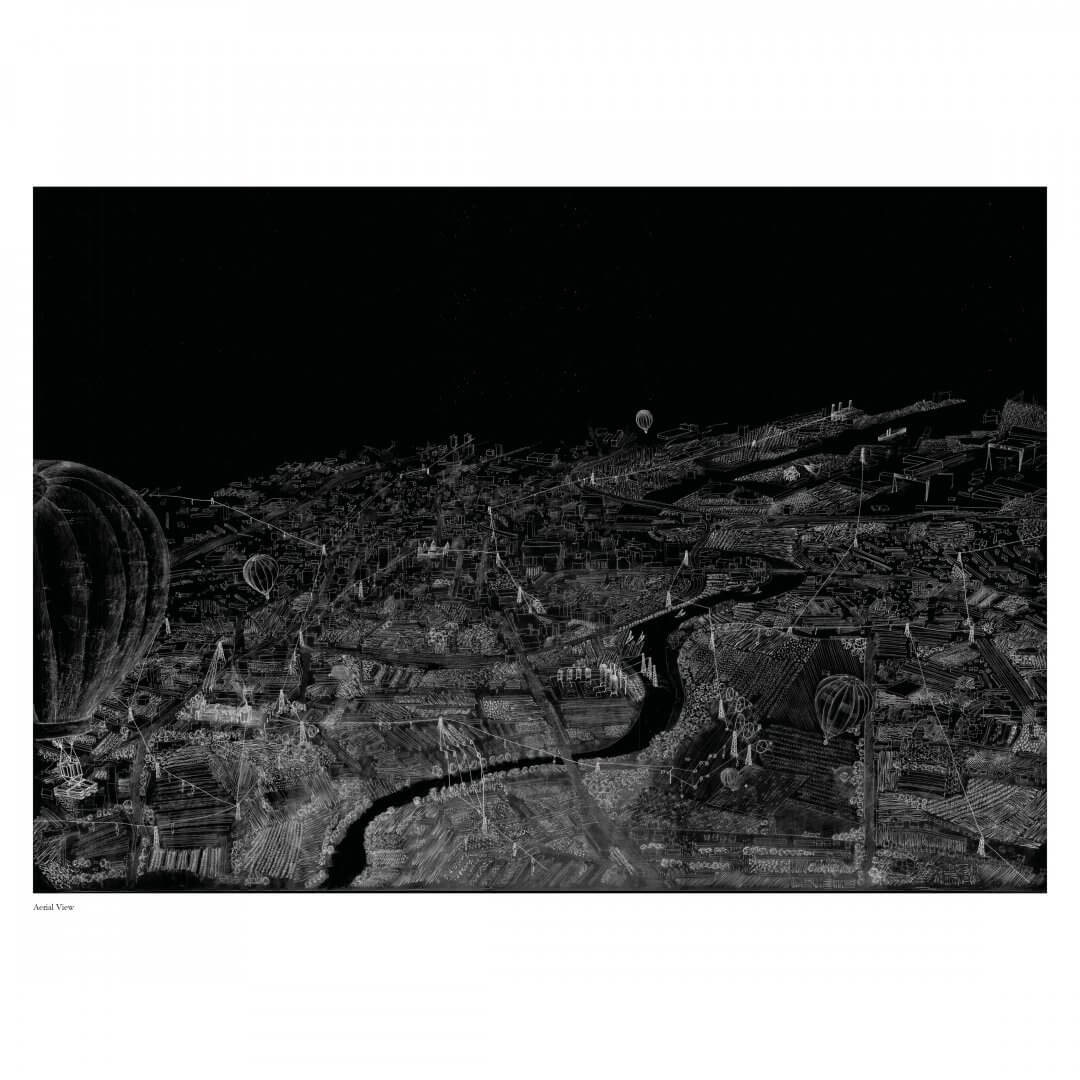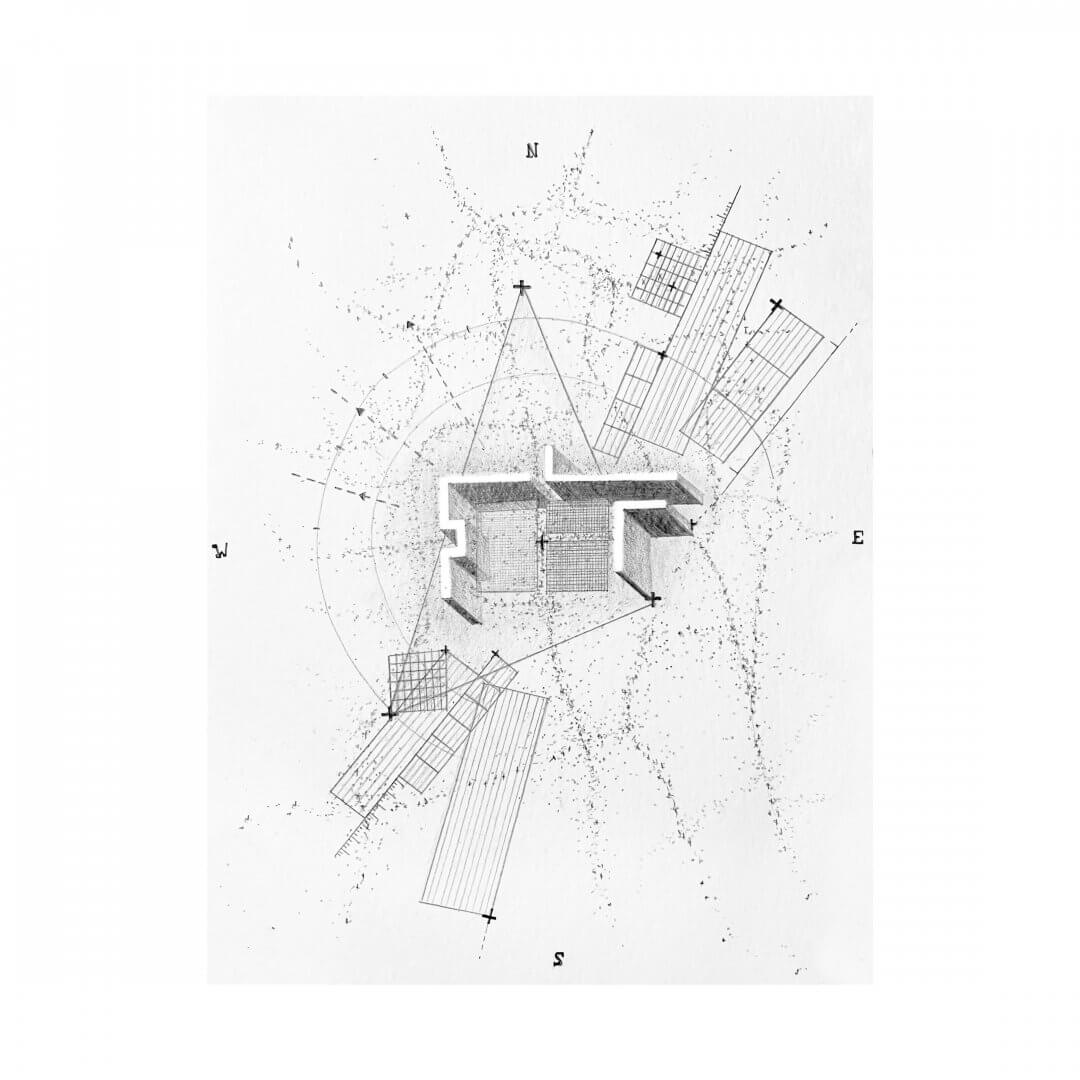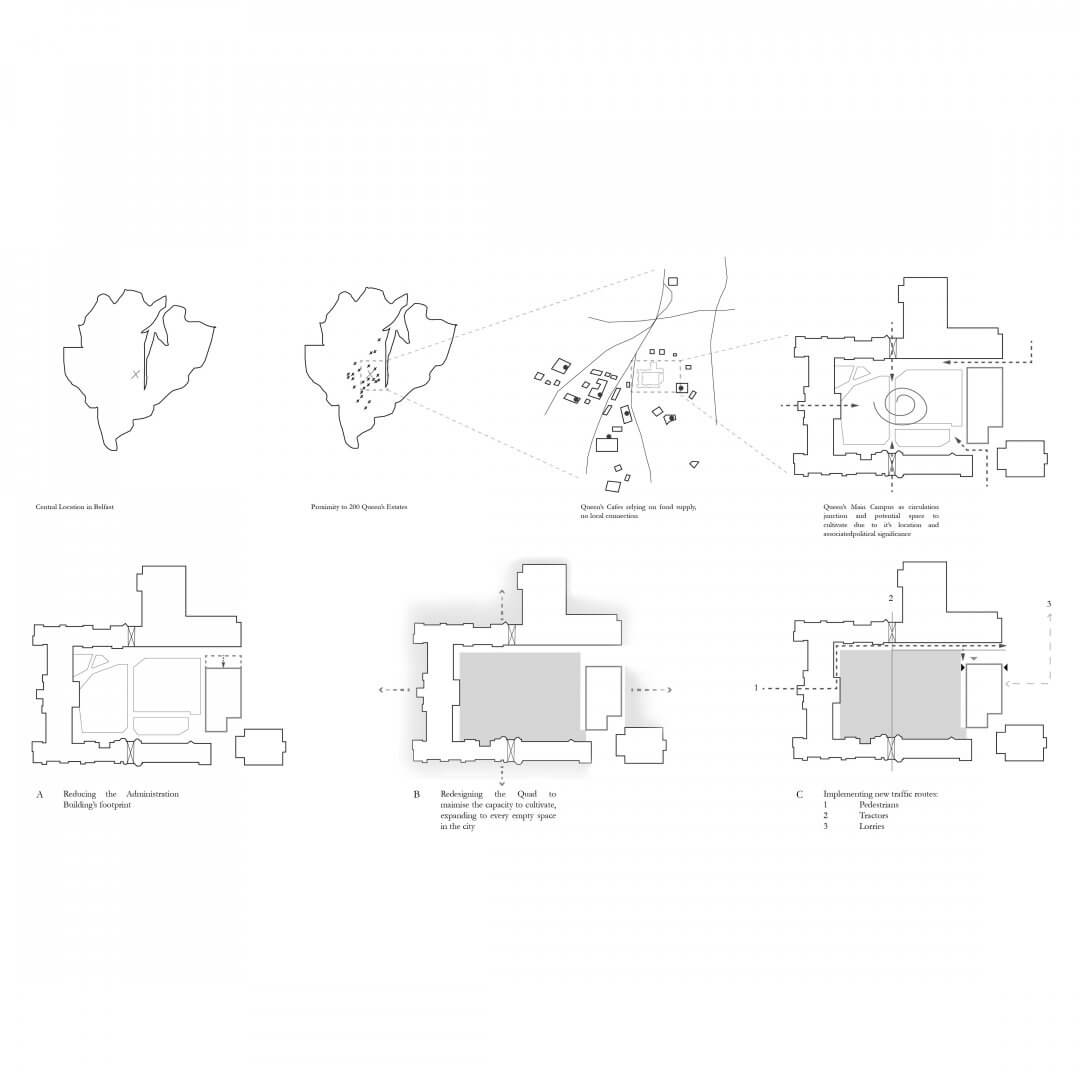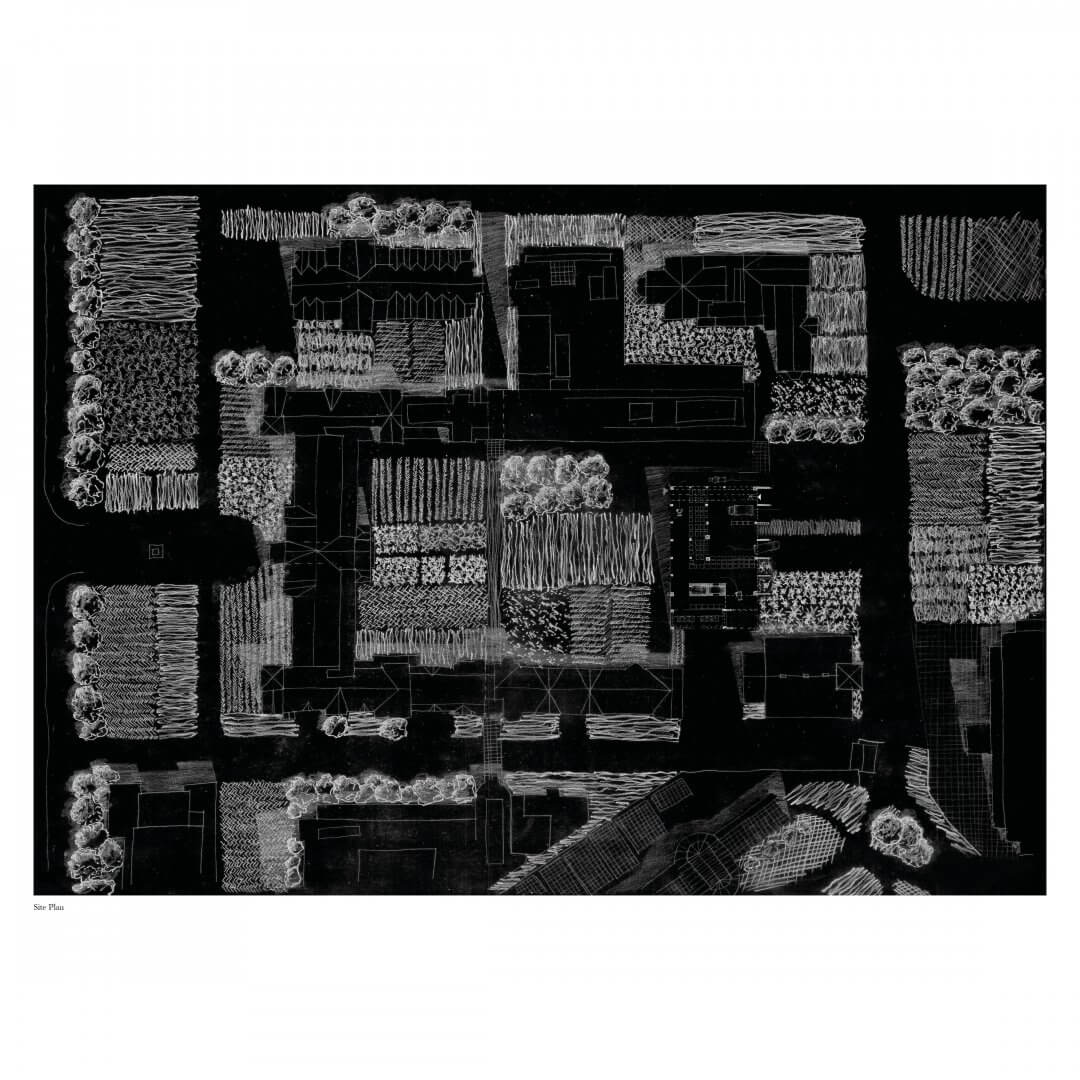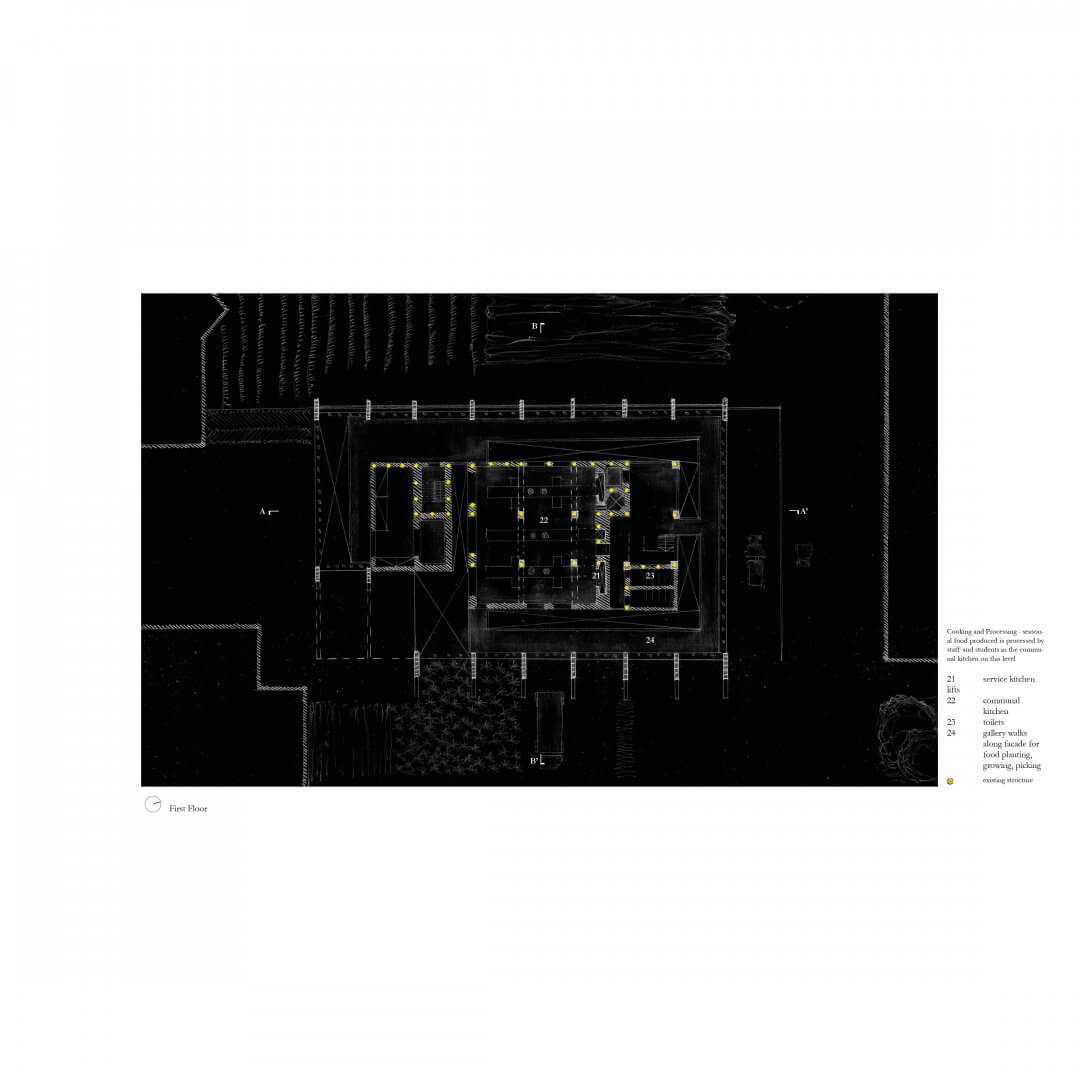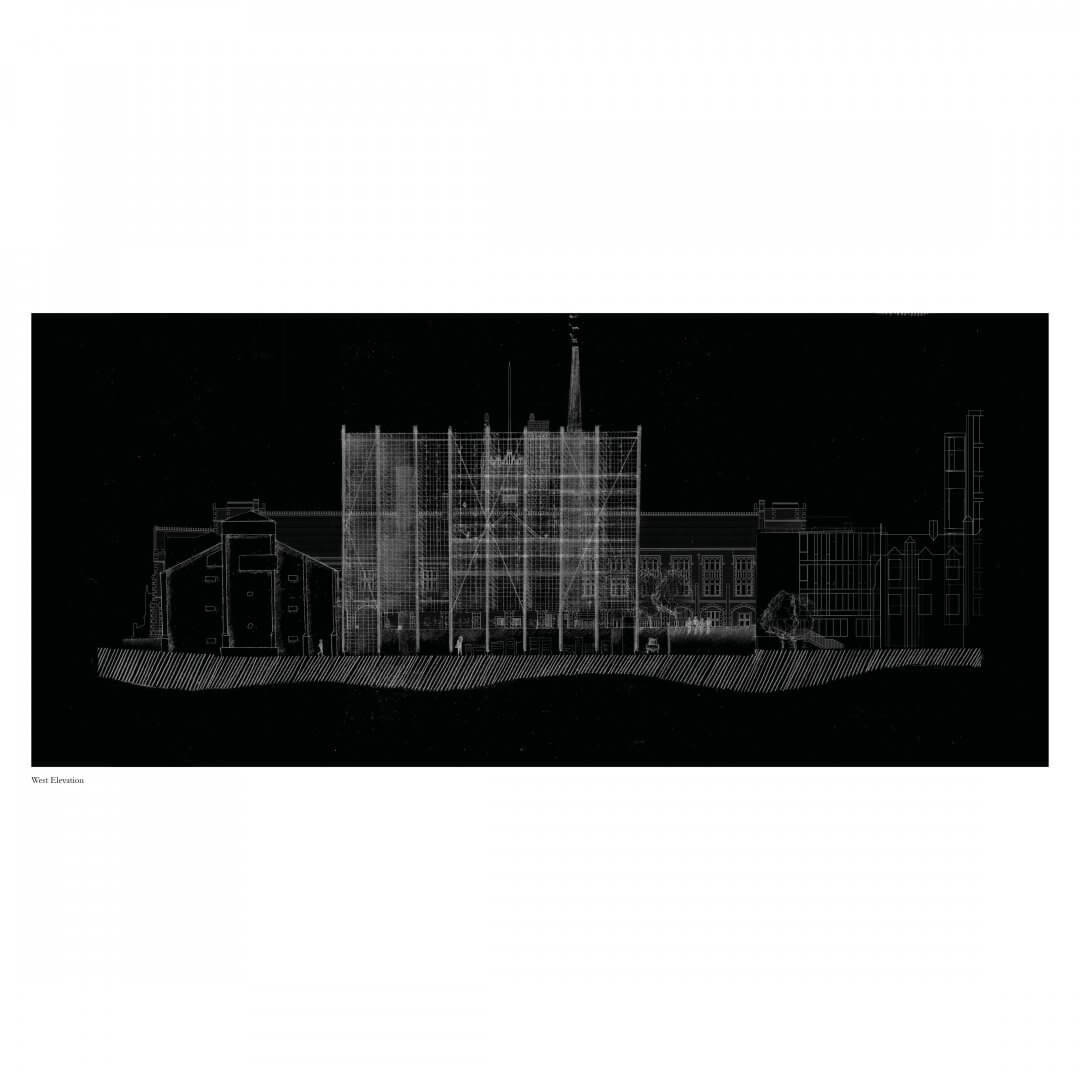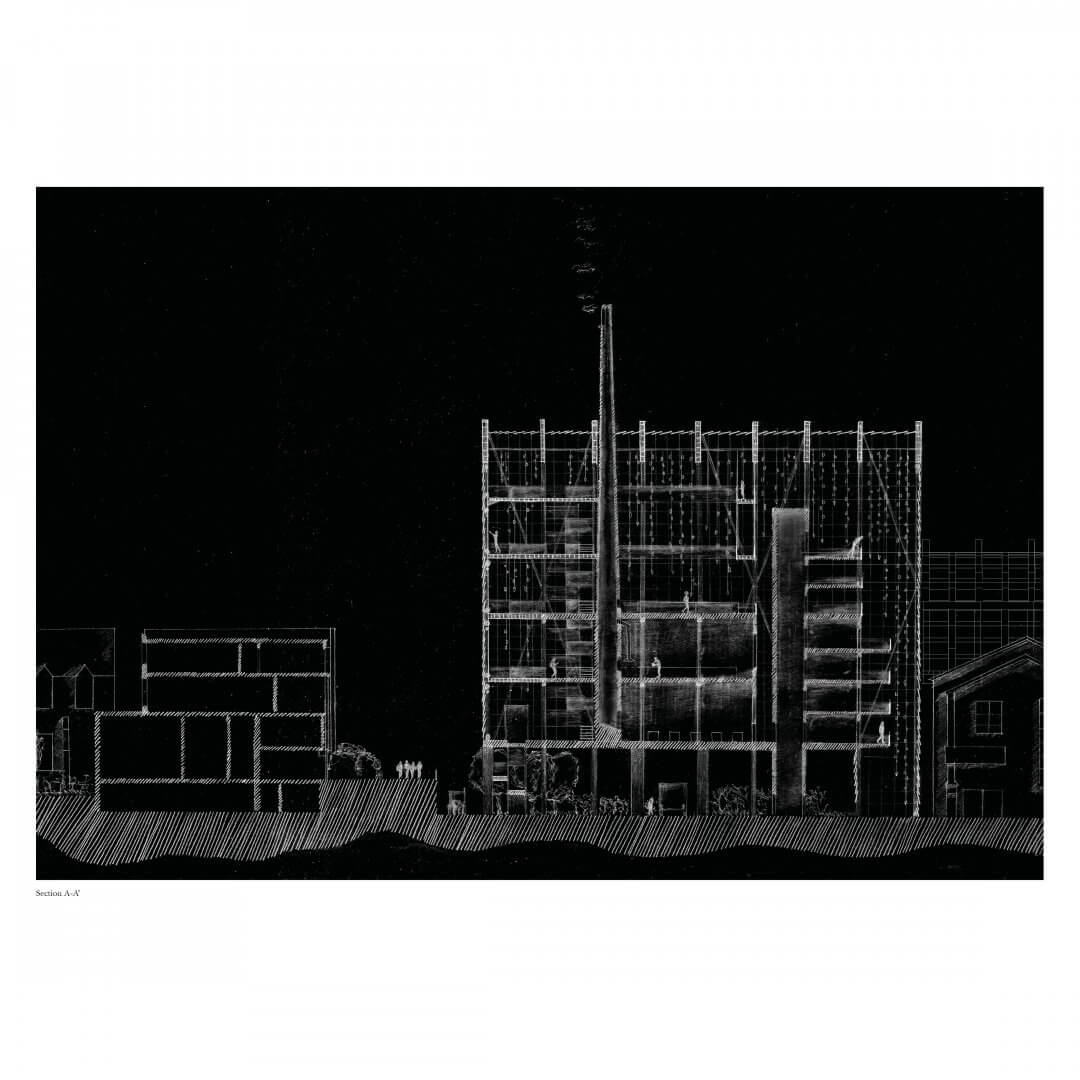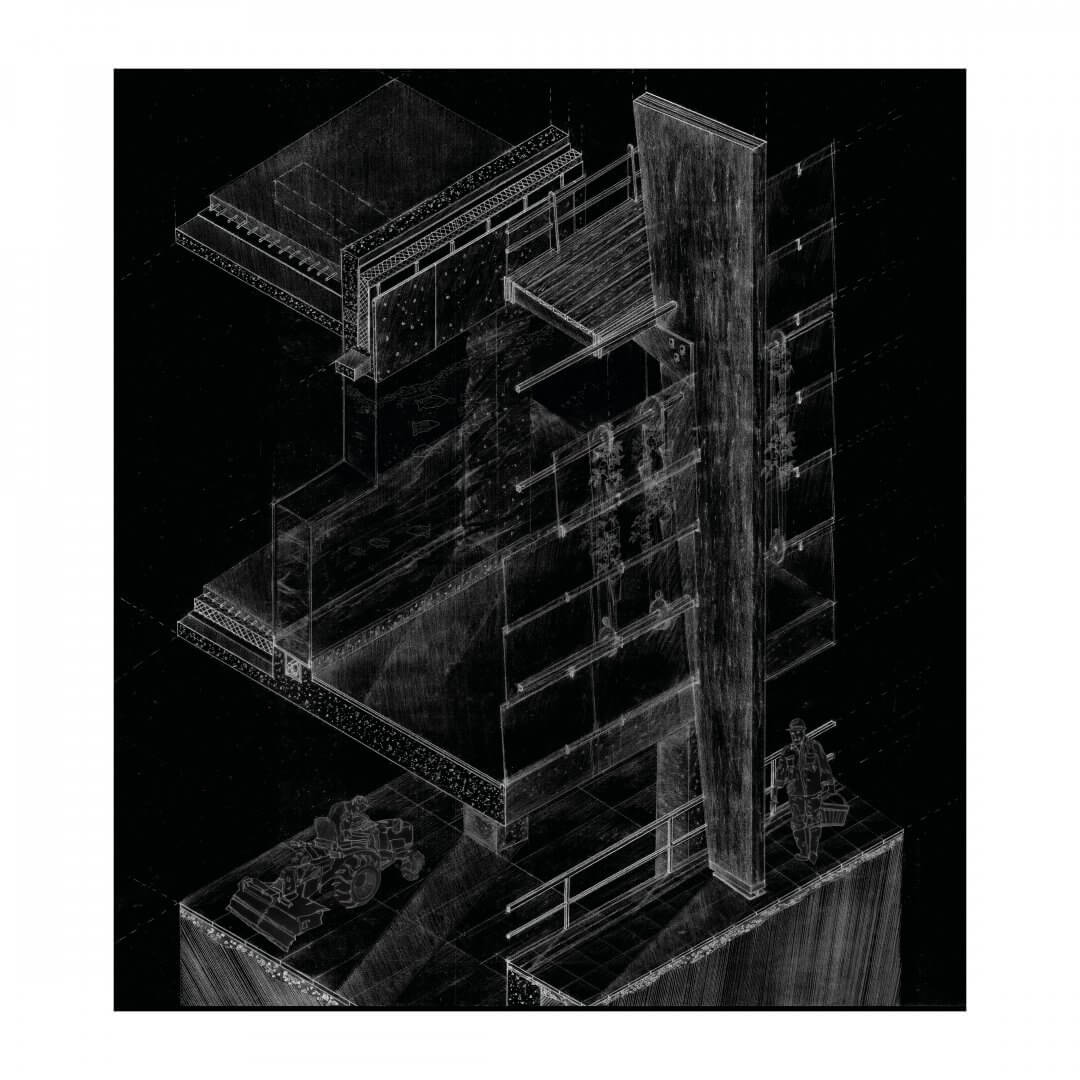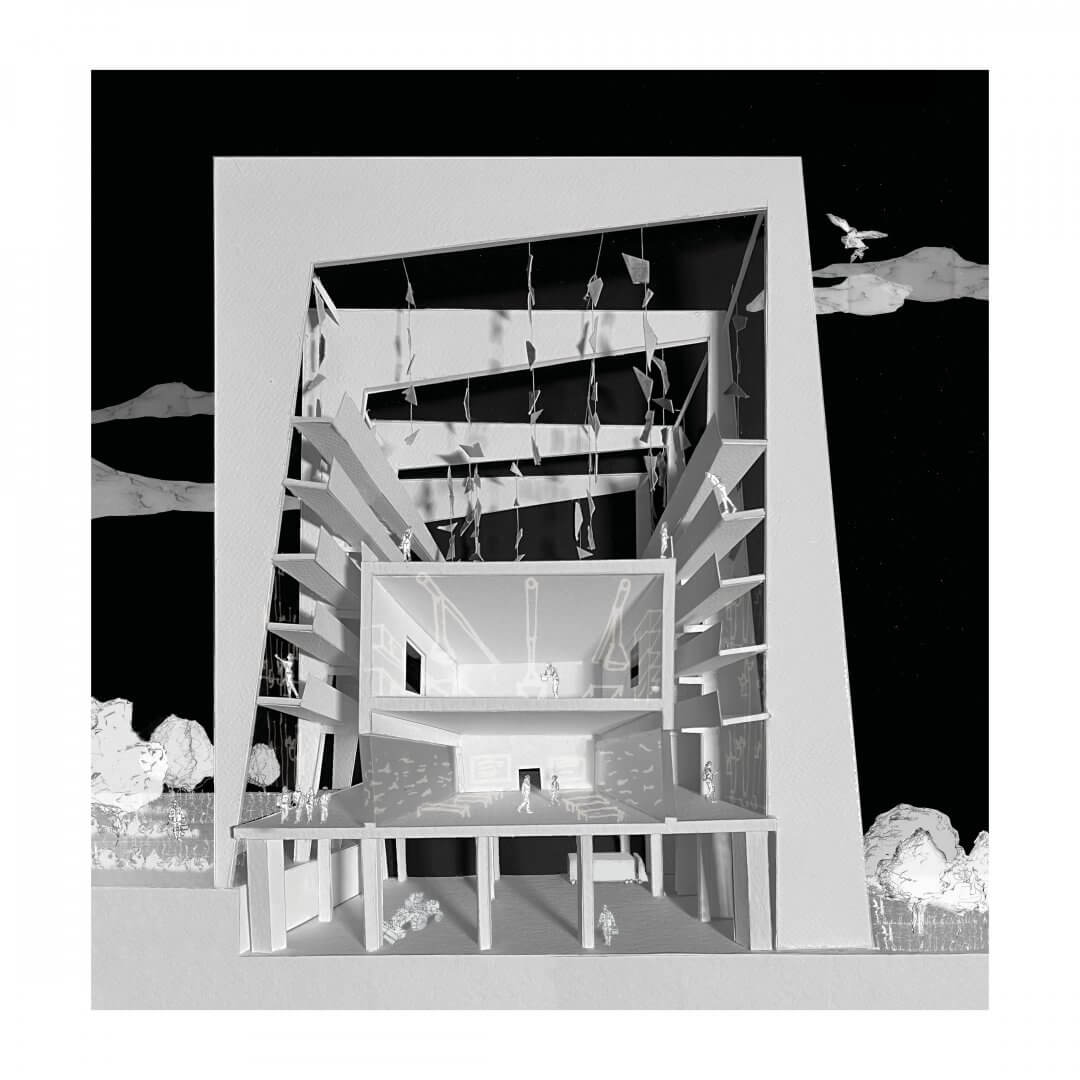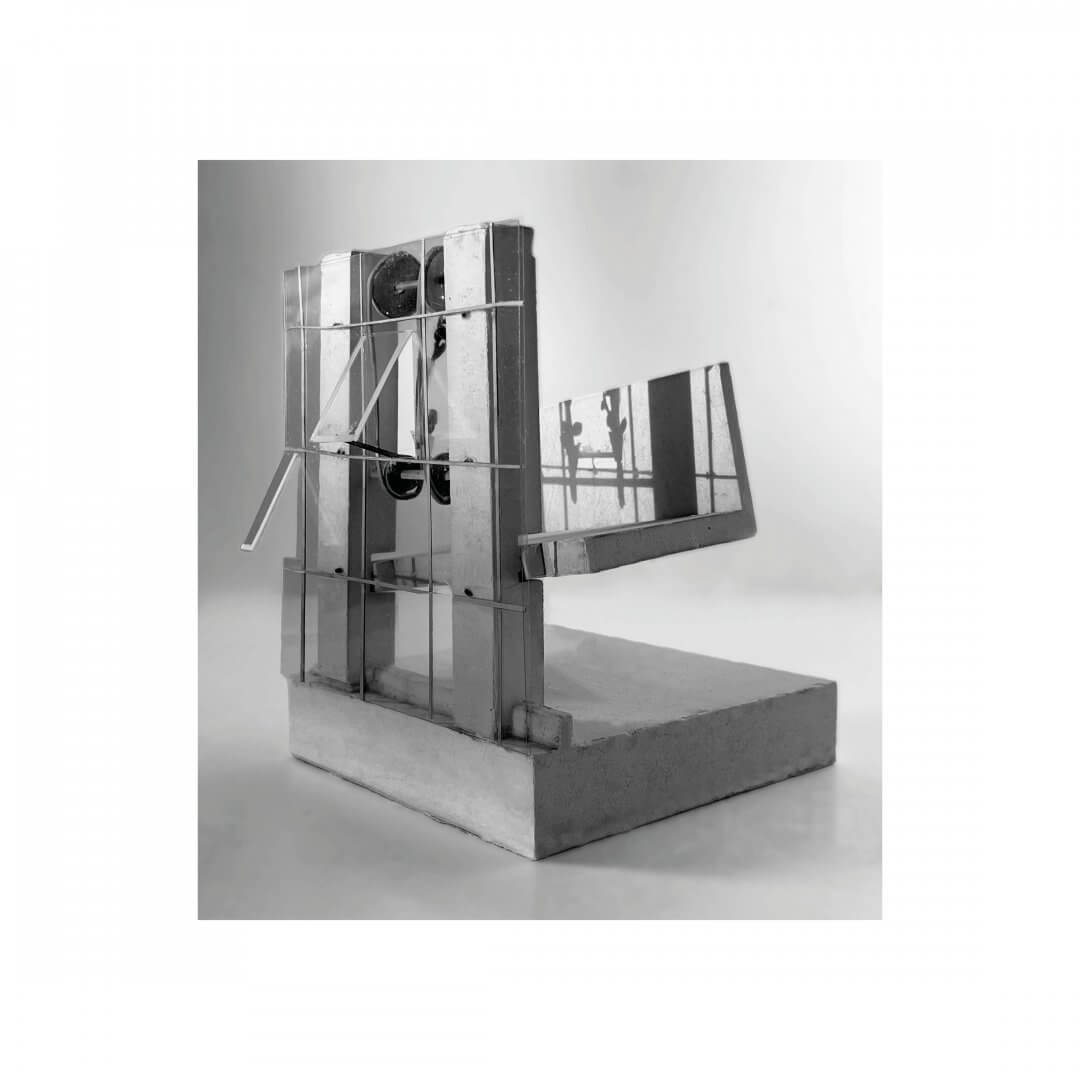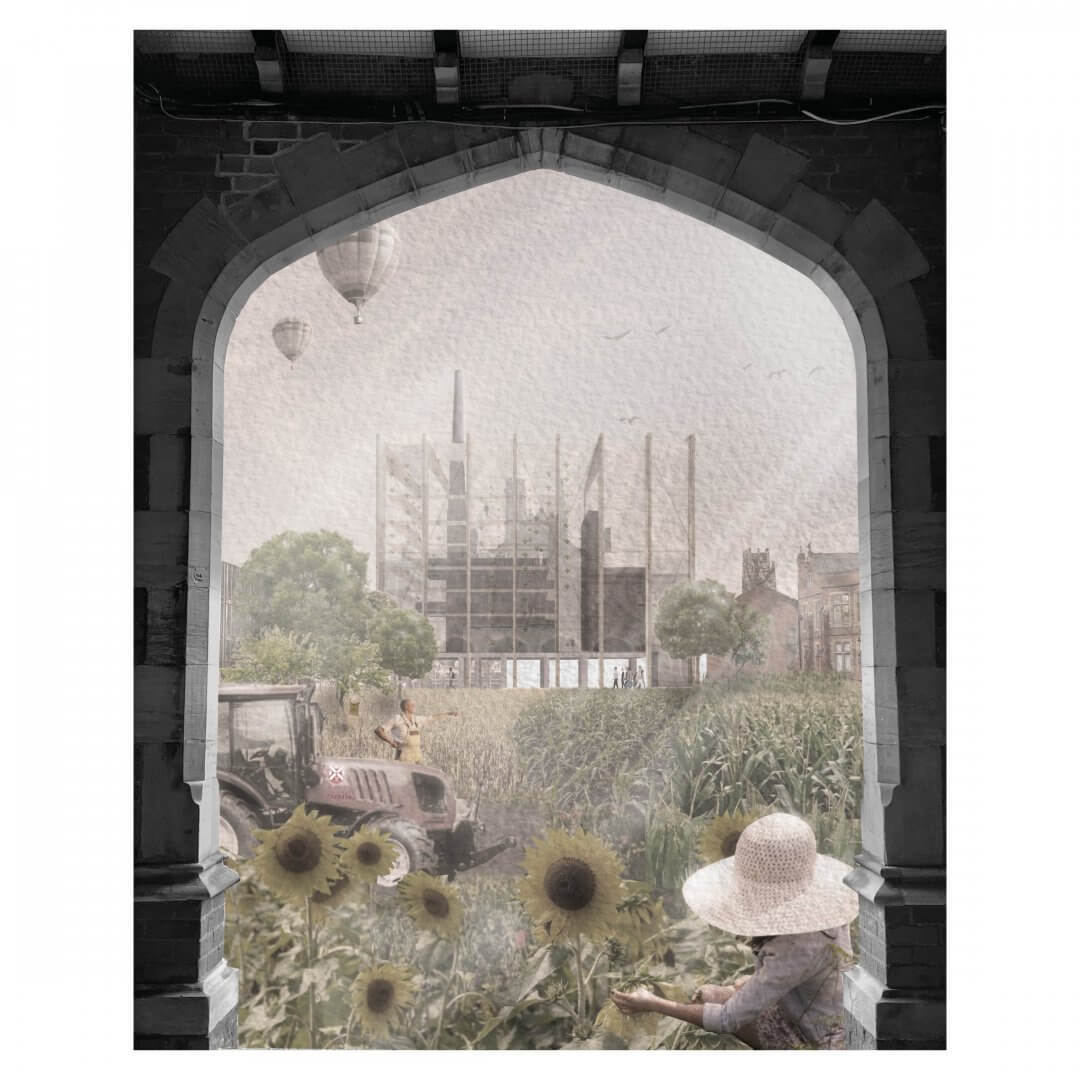Charlotte Marie Henrich
The Agriculture Agora is an adaptive reuse of the Queen’s University’s Administration Building and transforms it into an urban farm to ensure food security for Belfast.
The construct of communities relies heavily on and echoes the framework within which they operate. As for the Queen’s University of Belfast, their alma mater is to be a good neighbor – locally as well as globally. Therefore, the university is part of several voluntary projects that mobilize community cohesion such as PACT (Partners and Communities Together). Being a city university with 250 estates spread all over town, Queen’s does neither have one space for everyone to come together, nor a common dining hall. This project hence aims to elevate the current Administration Building into a student/staff hub creating a communal dining and food space that welcomes not only Queen’s but also the wider residential community.
Naturally, this undertaking is run in accordance with the university’s sustainable food policy. The project targets commitments outlined in the sustainable food policy statement of June 2022 such as sourcing, environment, and society. Consequently, local economy, procurement, equality, and diversity are promoted. However, aspects of managing (food) waste, to re-purpose as biofuel, recycling, and plant-based menus in combination with student-run community food projects, will be actively incorporated into the scheme. This gives the potential to open up the space and allow community gardens which contribute to the food production for the kitchen and dining hall – to raise awareness and enhance biodiversity and community cohesion.
Furthermore, this is closely related to Queen’s commitment to target the UN’s Sustainable Development Goals. Precisely, numbers 2, 11, 12, and 13 are targeted in this particular project. Hence, sustainable agriculture to provide nutritious food and maintain ecosystems as well as soil quality by sourcing locally and season based is promoted; Access to green space whilst creating an inclusive environment with urban-rural links through procurement and community-based activities is ensured; Natural resources and reducing food losses and waste, monitoring energy and recycle are relied on – The implementation of biofuel will close the cycle; Achieving these goals by means of educating the community through projects such as Living Lab or Fairtrade.
Situated within the Quad opposite Lanyon in the heart of Queen’s, the Administration Building will be reused in its concrete frame structure to accommodate a generous and inviting sustainable food and events hub not only for staff and students but also for the wider community. Its brick façade will be reclaimed and – to a certain extent – repurposed in the project as well. Community gardens for food production will be implemented in all open green areas, and the car parks adjacent to the building as well. This will create a whole network of food production to achieve a state of self-sufficiency. The heart of Queen’s Farm will accommodate: south-facing main greenhouse plantations, food processing, dining hall, smaller kitchen, communal kitchen, lecture halls, delivery/loading space for lorries and tractors, sanitary facilities.
All spaces are publicly accessible, encouraging students, university staff, and the wider community to participate in the production of food. This project intends to act as a thought-provoking catalyst for reimagining the metabolism of a city in light of the future of food security. This urban farming hub is aimed to act as a prototype that can be adapted at numerous locations throughout the city to establish a productive and self-sustaining network.
Author: Charlotte Marie Henrich.
Location: Belfast, United Kingdom.
University: Queen’s University of Belfast.
Year: 2022
